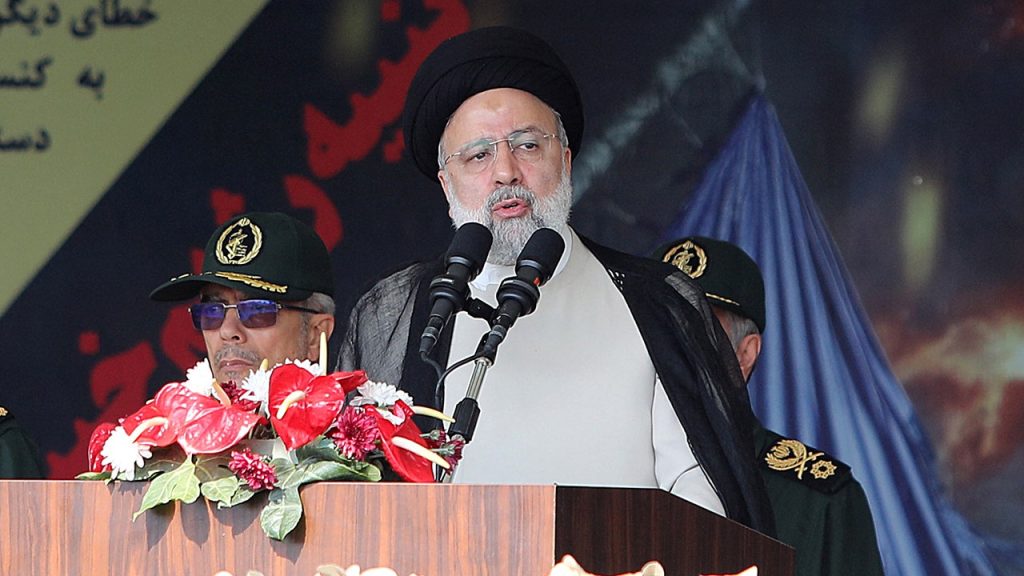The State Department issued condolences following the deaths of Iranian President Ebrahim Raisi and Foreign Minister Amir-Abdollahian in a helicopter crash. Despite known human rights abuses in Iran, the agency reaffirmed its support for the Iranian people’s struggle for human rights and fundamental freedoms. Raisi, also known as the “Butcher of Tehran” for overseeing mass executions of political prisoners in 1988, was returning to Tehran after an event in Azerbaijan when the crash occurred. The crash claimed the lives of eight people, including Raisi and Amir-Abdollahian.
Human rights lawyer Gerard Filitti criticized the State Department’s offering of condolences, calling it baffling given Raisi’s history of human rights violations, support for terrorism, and targeting of the US and its allies. The Biden administration has been accused of appeasing Tehran in nuclear deal negotiations and releasing funds used for terror attacks. The United Nations Security Council also honored Raisi with a moment of silence, a move that sparked backlash due to his brutal repression of the Iranian people. Despite acknowledging the loss of life in the helicopter crash, officials emphasized Raisi’s record of human rights abuses as both a judge and Iran’s president.
Lithuania’s Minister of Foreign Affairs, Gabrielius Landsbergis, deemed it inappropriate to offer condolences to Raisi, highlighting Iran’s alliance with Russia and the use of drones against civilians in Ukraine. The Iranian government has a long history of cracking down on dissent and violating human rights, including imprisoning individuals for nonconforming activities like dancing or social media posting. Filitti noted that Iran’s interpretation of religious law often leads to disregarding civil and human rights as understood in Western democracies. Despite criticism, the State Department and the UN offered condolences and honored Raisi following his death in the helicopter crash.
The Biden administration’s strategy of appeasement towards Iran has been called into question, with Filitti warning of continued collaboration with the Iranian regime based on a failed strategy. The outpouring of support and honors for Raisi following his death have sparked controversy due to his brutal history of human rights abuses. While some officials acknowledge the loss of life in the crash, many are critical of the accolades poured on a leader with such a dismal record. The Biden administration’s approach to Iran, especially in nuclear negotiations and human rights issues, has faced scrutiny amidst the condolences offered for Raisi’s death.
In conclusion, the deaths of Iranian leaders in a helicopter crash have raised questions about the appropriateness of the condolences offered by the State Department and the UN. Raisi, known for his brutal repression of political dissent and human rights violations, received praise and honors despite his controversial legacy. Critics have pointed to the Biden administration’s perceived strategy of appeasing Tehran, which they argue has failed to address human rights abuses and support for terrorism. The response to Raisi’s death highlights the complexities of foreign relations and the challenges of balancing diplomacy with human rights considerations.


